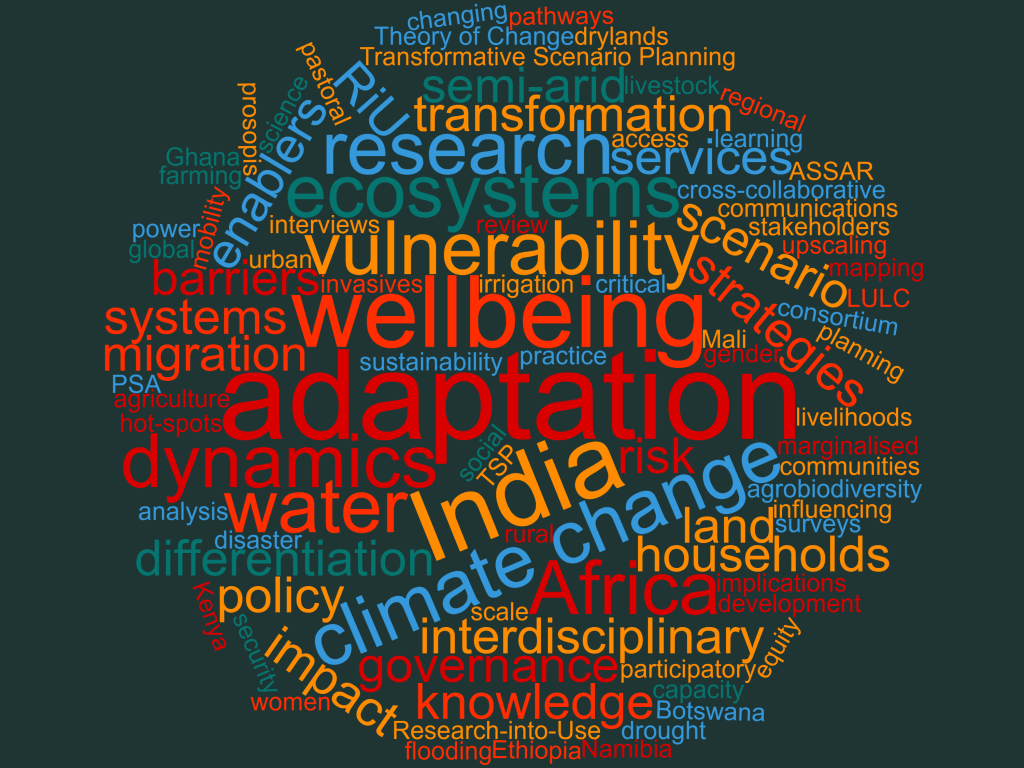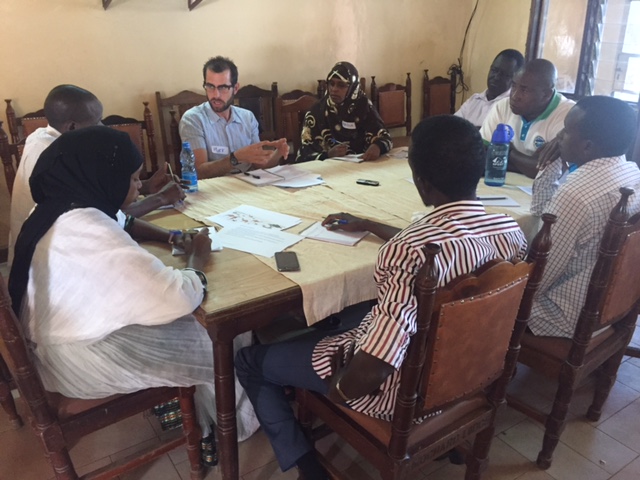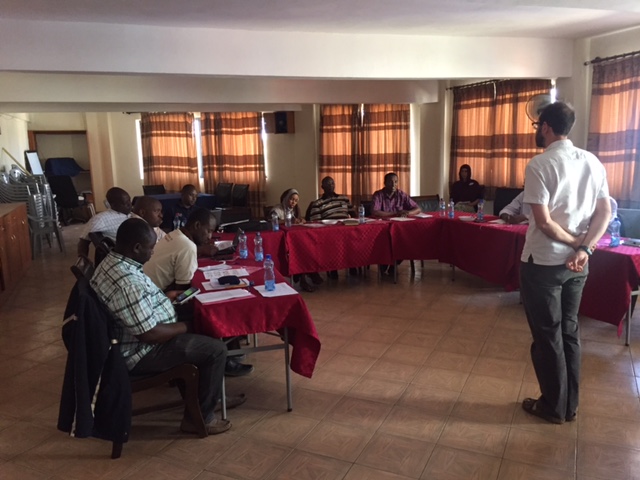'Developmentspeak'

Mark Tebboth from the University of East Anglia, looks at how 'developmentspeak' can hamper communication in communities not used to international development jargon.
By Mark Tebboth, University of East Anglia

The concepts and language of international development are often defined by the ideas and mindsets of donor agencies and – more generally – the international development community. Unfortunately, most of the leading thinkers and ideas in international development tend to travel from the Global North to the Global South. This global hegemony is not benign. It disempowers, excludes and marginalises other ways of thinking and other ways of being1,2, and reduces the space through which one can question whether the current mode of development is the right mode of development3.
|
What is Participatory Scenario Analysis? PSA is a novel and deliberative process that has three overarching goals that address a research need, a research into use ambition and a desire to empower participants. Fundamentally, the process is about working with marginalised people that have traditionally not been able or given an opportunity to think through and voice their opinions on issues or challenges that affect their daily lives and livelihoods. During the PSA, and over a two-stage process, stakeholders are guided through an exploration of the positive and negative trade-offs associated with different scenarios or visions of the future. Stakeholders are engaged in separate workshops so as to better explore and deliberate group-specific challenges. |
I have now been centrally involved in running five Participatory Scenario Analysis (PSA) workshops addressing the issue of pasture scarcity within the drylands of Northern Kenya. The first three workshops were held with three separate communities in the counties of Isiolo and Meru. The two most recent workshops, held in late June, were with representatives of non-governmental organisations (NGO) and relevant ministries and departments of Isiolo and Meru county governments.
One of the starkest differences, when comparing how and in what ways the participants across the different workshops engage with the issue of pasture scarcity, was in the use of language: in particular in the use of ‘developmentspeak’. In the NGO and government workshops, the ability of participants to clearly enunciate the language of development, the language of international NGOs, and the language of researchers, was all to evident. All of these participants were comfortable talking about issues like gender equality, empowerment, capacity building, and multi-sectoral responses.

For the participants of the three community workshops, we found more variation in the ease with which people used these same concepts and communicated these same issues. The community workshop that most closely matched our target sociodemographic grouping (avoiding village ‘elites’) was the one in which participants struggled most to express themselves coherently. Here, participants didn’t talk in the technical and jargon-laden language of international development but in the language of their everyday realities. Moreover, facilitators had to work the hardest to try to draw out the points that participants were trying to make. By contrast, in the other two community workshops – where participants were clearly more familiar with the way workshops work, and the sort of things that we, as international development practitioners and researchers, like to talk about – participants were more ready to offer an opinion, and to offer that opinion in the language of international development.
Whilst our research team was cognisant of these sorts of issues and made every effort to avoid falling into a ‘developmentspeak’ shorthand, experience shows this is not always the case. International development agendas and activities are often rooted in technical language, laced with jargon through which actors seek to justify objective interventions, for target groups that are identified in ‘neutral’ ways. Yet, this language marginalises those that are not conversant and tends to exclude those that are more on the periphery of society. This language of course has a place: every profession develops its own short hand, timbre, beat and vocabulary. But in a field where we seek to empower, and challenge structures that marginalise and impoverish people, we need to be judicious in the way in which this language is used and applied.

When working with people and communities that don’t do international development, we must make every effort to use ‘their’ language. If we can’t make the space for those people to communicate the issues that matter in a language they are comfortable with then we are not doing development, and certainly not doing development in a way that development should be done.
In the next stage of the PSA process, we will bring together people from each of the first five workshops for one local and one national workshop. I hope that we can do so with our eyes open, aware of the costs of using language that excludes.
1 Eade, D. (2010) Preface. In Cornwall, A. and Eade, D. (eds.) (2010) Deconstructing development discourse: buzzwords and fuzzwords. Rugby, UK: Practical Action Publishing in association with Oxfam GB, vi – x pp.
2 Cornwall, A. (2007) Buzzwords and fuzzwords: deconstructing development discourse, Development in Practice, 17:4-5, 471-484, DOI: 10.1080/09614520701469302
3 Whaley, F. Jargon hurts the poor. Asian Development Blog [Online]. Available https://blogs.adb.org/blog/jargon-hurts-poor [accessed 14/7/2017]